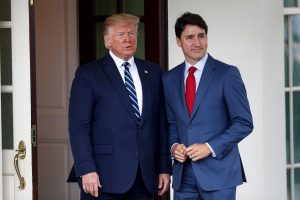At the last hearing in the Supreme Court for the grant of Non- Functional Upgradation (NFU) for the armed forces, the government sought more time to file additional objections. Additional objections were subsequently filed, all aimed at justifying the non-grant of NFU to the military.
In summary, the reasons given by the government included firstly, policy- making is the government’s exclusive domain and that it has decided not to grant NFU to the military. It stated, ‘Judicial review cannot lead to policy making’. Secondly, constitutional right to equality as enshrined in Articles 14 and 16 are not applicable to the military.
Advertisement
Thirdly, the armed forces enjoy other perquisites and have different service conditions. Hence, they cannot be equated with civil services and thus are not entitled to NFU. Fourthly, granting it to the military would impact status, command and control, discipline, efficiency, morale as also reduce the desire for officers to aspire for higher ranks. Finally, it would be an additional financial burden on the government.
In each case, the argument appears to only be to stall the judgement. That policy making is the prerogative of the government is accepted but then the government should be responsible enough to ensure that its policies are on an equal basis and not selective. It cannot place one central uniformed service below the civil bureaucracy, solely because it possesses the power.
By quoting equality under Articles 14 and 16 of the Constitution, the government hopes, in case of an adverse judgement to refer it to a Constitutional bench, thus further delaying the decision. While Article 33 of the Constitution empowers Parliament to restrict or abrogate some fundamental rights of the armed forces, however pushing it to include right to equality in salary and status may not may be what the framers of the Constitution would have visualized. Section 21 of the Army Act alongside Army rules 19-21 already lay down certain restrictions on military personnel.
In the opinion of a common citizen (not a legal beagle), with limited knowledge of law, the intention of Article 33 was not to make military personnel second class citizens compared to the bureaucracy, as the government’s statement to the court appears to suggest but to safeguard the nation by denying them the right to strike, unionize or demonstrate, thus ensuring national security. Military personnel are after all proud citizens of the country, always ready to lay down their lives for the nation.
That armed forces officers have different service conditions is well established. As compared to other services, they face the most hazardous conditions, maximum supercession, slowest promotions and earliest retirement. They are selected through the UPSC however their training and nature of employment being different have specific terms and conditions.
Every Group A service is also selected through the same UPSC, undergoes its own training, has different roles but better avenues, faster promotion and later retirement. The fact that they do not wear a uniform entitles them to NFU, while those who do are denied it.
The government comment that it would impact status, command and control as also discipline is most absurd. If there has been one demoralising and alienating factor created by the government in the hearts and mind of the armed forces, it is NFU. Unless considered for the military, the anger and demoralisation would continue. It would neither impact status, command, control or discipline.
The annexure to the grant of NFU states, “The upgradation granted under these orders will be a purely non-functional upgradation, personal to the officer and it would not bestow any right to the officer to claim promotion or deputation benefits based on non-functional upgradation in such a manner’. If these rules are being broken, especially when the uniformed and civilians work together in multiple establishments, then the government is failing to implement its own orders. Claiming that it would enhance status, perquisites and associated privileges is to twist its own official order.
The other contention is additional burden on the government. If it is an additional burden, then it should be scrapped for all. Every cost is an additional burden, however if granted to others, then denying to one group is illegal, for which the court has been approached. If directions are passed by the courts, then the government’s claim of additional burden would automatically be overcome.
The objections presented also suggest that apart from broad parity set by pay scales, there is no other parity between the armed forces and the bureaucracy. If this were true, the issue of status of civil cadre vis-a-vis the military should not have been a matter of debate. The ‘order of precedence’ should have been adopted in the working environment which is being ignored and separate equations are being considered at the government level. The battle for NFU is solely to overcome this disorder created within the government.
Military Service Pay (MSP) is basically an addendum pay to address those intangible constraints and disadvantages unique to military personnel which affect them for most part of their service career. It is neither a grant nor is it considered for seniority adjustment as NFU. Seeking to remove MSP or such benefits would indicate the animosity of the government against the military as was evident when it scrapped entitled rations.
The government has viewed the case in court from a narrow perspective. The intention of those fighting the case is not to seek superiority in pay or seniority, but justifiable equality. The military remains the only central service which has been denied NFU. The government appears to be adopting multiple means of ensuring that it remains ungranted. The decision of the apex court is keenly awaited.
The writer is a retired Major-General of the Indian Army.











